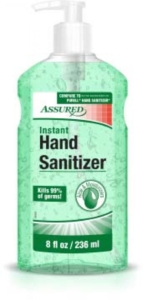United ending domestic change fees is welcome news and a challenge to the industry
Media contact: National Consumers League – Carol McKay, carolm@nclnet.org, (412) 945-3242 or Taun Sterling, tauns@nclnet.org, (202) 207-2832
Washington, DC—The National Consumers League (NCL), America’s pioneering consumer and worker advocacy organization, applauds United Airlines for its decision to permanently remove its $200 domestic change fee. The move comes after more than a decade of complaints by travelers and advocacy by consumer organizations like NCL who have urged the industry, the Department of Transportation, and Congress to rein in excessive, anti-competitive fees.
The following statement is attributable to National Consumers League Executive Director Sally Greenberg:
“We thank United Airlines for this bold policy change. United’s announcement is a victory for basic fairness in the air travel marketplace. The flying public has been beleaguered by hefty fees for everyday acts like changing an airline ticket, checking baggage, or reserving a particular seat on the plane. This comes at a critical time, as millions struggle financially due to the COVID-19 pandemic. United’s decision to end domestic change fees—and we take them at its word when it describes the change as permanent—is welcome news for airline passengers.
We also want to extend our thanks to fellow advocacy groups and pro-consumer Members of Congress like Sen. Ed Markey (D-MA), Sen. Richard Blumenthal (D-CT) and Rep. Steve Cohen who have fought for consumers in Congress by championing the FAIR Fees Act. This common-sense bill would require airlines’ add-on fees to be proportional to their actual cost.
United Airlines should be applauded for listening and responding to consumer advocates. NCL has long argued that change fees are an unnecessary and unfair money grab by the airlines, as it costs practically nothing to change a traveler’s reservation when the unexpected happens. We sincerely hope that other members of the airline industry, particularly the other two legacy carriers—American and Delta—will follow suit. Failing to do so will put them at risk of losing even more passengers to companies like United and Southwest that do right by their customers. NCL will continue to push for common-sense legislation that requires all airlines to resist using their considerable market power to gouge consumers on fees and penalties.”
###
About the National Consumers League (NCL)
The National Consumers League, founded in 1899, is America’s pioneer consumer organization. Our mission is to protect and promote social and economic justice for consumers and workers in the United States and abroad. For more information, visit www.nclnet.org.


 By NCL Executive Assistant Adrienne Archer
By NCL Executive Assistant Adrienne Archer The Food and Drug Administration (FDA) has observed a sharp increase in those that, in addition to ethanol, also contain
The Food and Drug Administration (FDA) has observed a sharp increase in those that, in addition to ethanol, also contain 
 By NCL Health Policy intern Talia Zitner
By NCL Health Policy intern Talia Zitner











